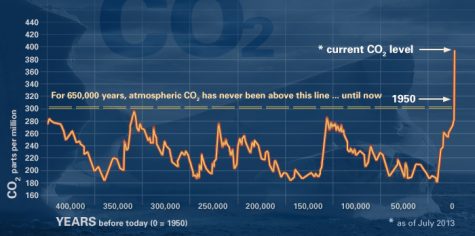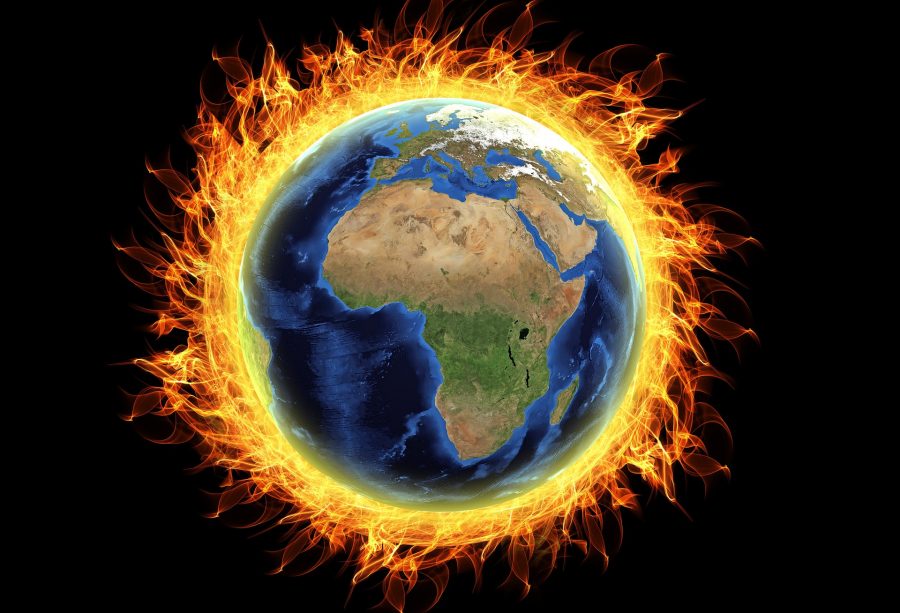Global Warming Here, There, and Everywhere
It’s not beginning to look a lot like Christmas.
As an avid snowboarder, I am partially dissatisfied by the warmer temperatures and lack of snow Colorado has seen these past couple months. At a time when soft, fluffy flakes should be fluttering to the ground, we have minimal snow and temperatures in the 60s and 70s. Whether or not this is due to global warming, the unnaturally warm weather sparks interest in the subject of climate change.
If you are unfamiliar with the basics of climate change caused by greenhouse gases, NASA has a great explanation of everything you need to know here.
An overwhelming amount of evidence points to humans as the cause for rapid climate change. 97 percent or more of actively publishing climate scientist agree that “climate-warming trends over the past century are extremely likely due to human activities” (climate.nasa.gov). Most of the world’s leading scientific organizations have issued public statements endorsing this position as well. Following is a brief overview of the evidence that compels almost all climate scientists to argue the existence of anthropogenic (human-caused) global warming.

Throughout the history of the planet, Earth’s climate has fluctuated. Over the past 650,000 years, there have been 7 seven cycles of glacial advance and retreat, with the last ice age ending approximately 7,000 years ago. These fluctuations are due to minor variations in Earths orbit that alter the amount of solar energy that reaches our planet. More recently, data collection has shown a swift increase in the rate of global warming (as seen on the graph), causing scientists to be confident in their belief that recent global warming is human-induced. With this data collection, scientists have been able to focus on and measure key pieces of evidence such as:
Sea Level Rise
- Global sea level rose about 6.7 inches in the last century.
- In the last decade, however, the rate nearly doubles that of the last century.
Global Temperature Rise
- The surface of the Earth has warmed considerably since 1880.
- The majority of the warming has occurred since the 1970s.
- Of this time, the 20 warmest recorded years have occurred since 1981.
- The top 10 warmest recorded years have occurred in the past 12 years.
Warming Oceans
- The oceans, which cover about 71 percent of the Earth’s surface, have absorbed an increasing amount of heat.
- From 1969 and on, the temperature of top 2,300 feet of ocean is recorded to have increased approximately .3 degrees Fahrenheit.
Shrinking Ice Sheets
- Both the Greenland and Antarctic ice sheets have dropped in mass.
- From NASA’s Gravity Recovery and Climate Experiment, it was determined that Greenland lost 36 to 60 cubic miles of ice per year from 2002 to 2006, and Antarctica lost about 36 miles of ice per year from 2002 to 2005.
Read more about evidence for rapid climate change at NASA.
There is no question that increased levels of greenhouse gases must cause the Earth to warm in response. These trends are likely to continue at an even greater rate if no action is taken to lower the amount of greenhouse gases emitted. In some time, increasing heat would cause the seas to rise even higher, flooding the coasts. Global warming would cause an increase in wildfires, droughts, and heat waves. Our own Rocky Mountains would see the death of millions of more trees, victims of tree-killing insects, wildfires, and stress from heat and drought. An increase in climate change could also account for more common occurrence of extreme weather events, including more destructive hurricanes. Lastly, heat increase would disrupt ecosystems worldwide, endangering wildlife and the careful balance organisms and their environments.
Something must be done to curb this environmental degradation, and the evidence for human role in climate change is highly convincing, so why is the fight against global warming lacking power in modern society?
For some, ignorance is bliss. Even if people do understand the nature of the problem, many feel that they as a single person are powerless to make a difference, so they ignore it. Global warming is also quite easy to ignore since the complications lie in the future, not the present. We are living decent now, so why worry about the floods, droughts, wildfires, hurricanes, and other obstacles that won’t appear for several more decades, or maybe even a century, right? Or maybe we should combat the issues now so that our home planet is not plagued by higher temperatures in the future. Although, achieving success in this fight requires a great consensus on the issue at hand and an even greater global effort towards change for a cleaner, healthier, cooler planet.

Shalom le'kulam, my name is Jonathan Flat and I am the Managing Editor for this outstanding school newspaper. As a 16-year-old in the 12th grade, I'll...




Jessica Cox • Dec 1, 2016 at 1:00 pm
This is a very eye opening article! Thanks Jonathan!
Robert Corl • Dec 1, 2016 at 12:26 pm
I’m glad we have finally published a story on climate change. This so called “winter” has been rather disappointing and has made me curious about climate change as well. Thanks for the information and links, this was very well done.
Ryan Self • Dec 1, 2016 at 12:22 pm
This is a lot of information about our planet. Great research Jonathan.
Megan Reynolds • Dec 1, 2016 at 12:20 pm
This is very interesting! Its scary to think about the possible negative repercussions of global warming. I agree that we must come together as a community and combat the ever growing pollution.
Carter Rodny • Dec 1, 2016 at 12:19 pm
Has La NIna had any effect on the weather? We may not be getting much snow but the Notheast and Northwest have been getting dumped on.